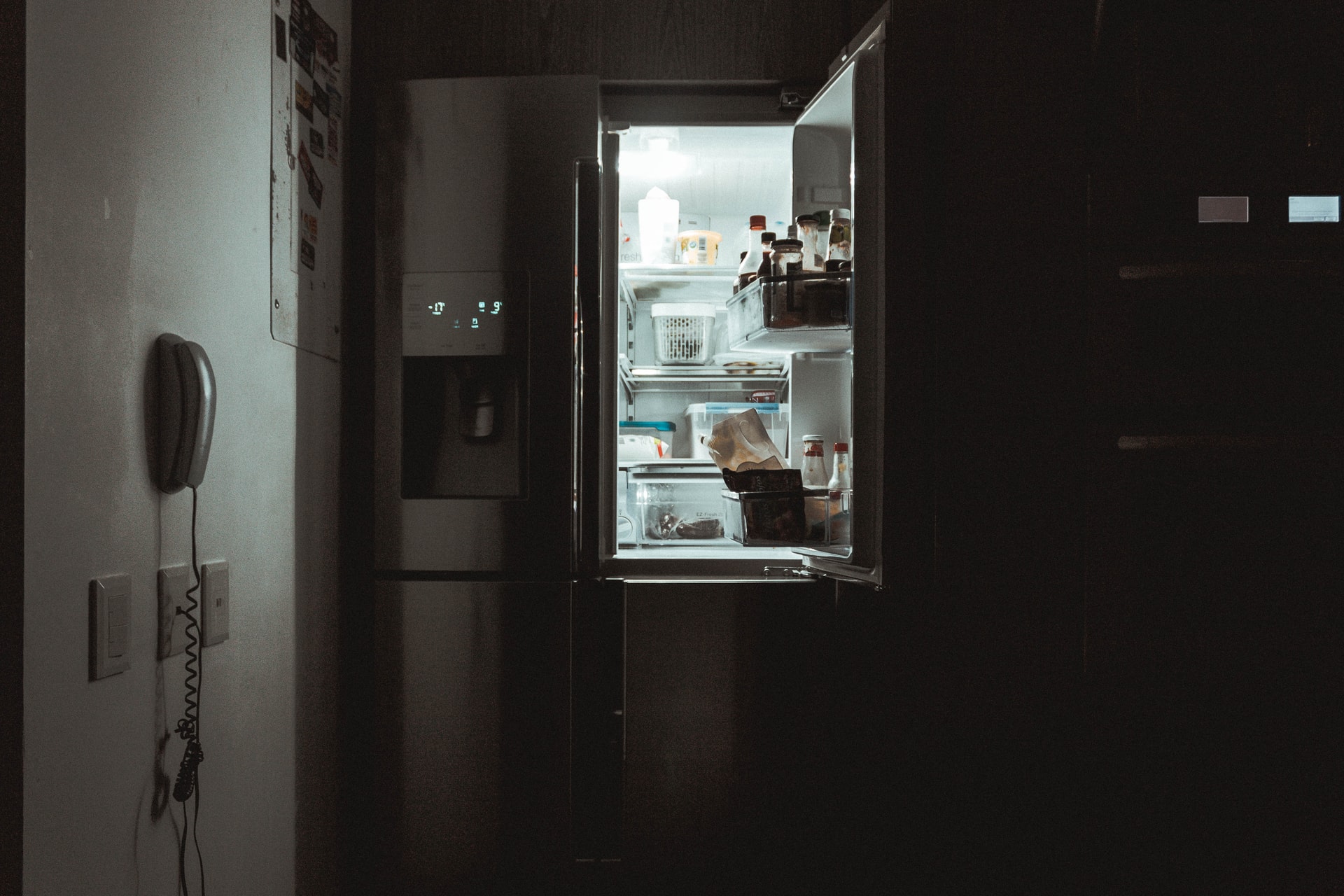
29 Jul Is There Black Mold Growing in Your Fridge?
When it comes to letting food get moldy, we are all guilty from time to time. Maybe it’s that leftover hunk of cheese from last week’s Pizza Night that was left forgotten in the back of the fridge. Or maybe it’s white bread in a bag that was not sealed well enough to keep moisture out.
While many people assume throwing away moldy food solves the problem, that’s not necessarily the case. Spores from moldy food can spread throughout your refrigerator and into the rest of your home, where they can continue growing and even affect your health.
Let’s talk more about how to get rid of mold in your fridge—especially black mold—so it does not become a bigger problem.
What causes black mold in the fridge?
Many times we surprise people when we tell them mold can grow in their refrigerator. People assume the cold temperature of a refrigerator keeps mold at bay. The sad news is that unless it’s a freezing temperature, mold does not mind the cold and can grow with no problem.
Mold needs three main things to grow:
- Constant moisture
- Darkness
- A natural food source
A refrigerator is teeming with all three of those ingredients, making it the perfect place for mold to grow if you’re not careful. While many different types of mold can grow in the refrigerator, toxic black mold—Stachybotrys chartarum—especially loves the fridge.
Can black mold in the fridge make me sick?
While you may think that mold in the fridge stays right where it is, think again. Mold reproduces by emitting microscopic spores. Those mold spores move from moldy food to the rest of your refrigerator, landing on the shelves, the door seals, and on other food. And, every time you open the refrigerator door, mold spores escape and start floating around the rest of your home, and could start growing in other places like your walls or your carpeting.
Not only can mold spores from the refrigerator cause black mold to start growing throughout your house, because they’re airborne, they can also get inside your body. Breathing in black mold spores causes mold allergies and mold sickness symptoms like:
- Sneezing, runny, and/or stuffed up nose
- Coughing and/or shortness of breath
- Itchy and watery eyes
- Headaches
- Toxic mold rash
How do I keep mold out of my refrigerator?
Wondering how to get rid of mold in the fridge? The best place to start is by preventing mold growth in the first place. Here are our top tips for preventing toxic black mold from taking up residence in your refrigerator.
Fully Cover Food
Keep all stored food tightly sealed and covered. This helps prevent moisture from accumulating, which helps stop mold from growing. And, mold spores in the air will have a harder time landing on food that is properly enclosed.
Clean the Fridge Regularly
We suggest checking your fridge for old food at least once a week, and giving your fridge a deep clean once a month. Wipe down all of the refrigerator surfaces, including the walls, shelves, doors, and drawers with a disinfectant cleaner to remove any mold spores that may have accumulated.
Properly Dispose of Moldy Food
If you notice mold growing on any of your food, quickly wrap it in plastic and place it in a trash can with a cover—preferably outside—as quickly as possible. This will help minimize the number of mold spores traveling from the food to other places in your house. Never smell food that is obviously moldy—you could breathe in toxic mold spores, setting yourself up for an allergic reaction.
Preventing Refrigerator Mold in Brockton, Massachusetts
While it may not seem like much of a threat, mold growing in your refrigerator can be a real problem. Not only can it grow on other foods and surfaces in the fridge, it can also affect the rest of your home and your overall health. By following our prevention tips, you can help stop mold from invading your refrigerator.
If you have more questions about how to get rid of mold in your fridge and the rest of your home, call Pure Maintenance NE today at 401-205-3825.
Photo by nrd on Unsplash




No Comments